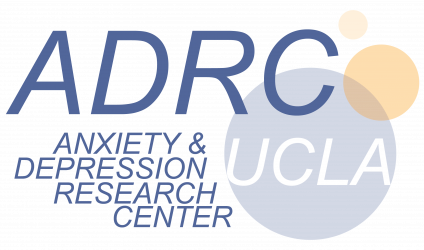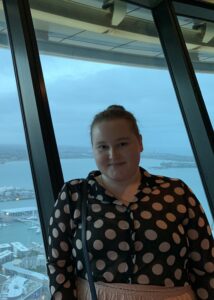|
Aleeza West, Lab Manager
|
Assistant to Michelle G. Craske Research Coordinator: VR-RT Email: aleezawest@psych.ucla.edu Aleeza West is the lab manager at the ADRC. She joined the lab as an undergraduate as a research assistant and coordinator for various studies. She graduated from UCLA with a B.A. in psychology in 2024. Aleeza is interested in the maintenance factors and learning mechanisms underlying therapy for anxiety and related disorders. |
|
Jessie Allenbach, Research Coordinator
|
Research Coordinator: YMAP Email: jallenbach@g.ucla.edu Jessie first began volunteering as a research assistant at the ADRC in April of 2022 while in her senior year as an undergraduate at UCLA. After graduating with her B.A. in Psychology in 2022, Jessie continued to volunteer in the ADRC and became a Study Coordinator for the Youth Mindful Awareness Program (YMAP) at the ADRC in November of 2023. Jessie is interested in researching social support as a protective factor for depression. She is also interested in developing interventions that target anhedonia, loneliness, and suicide risk. |
|
Gabe Fiol, Research Coordinator
|
Research Coordinator: DecNef and TAD Email: gfiol@psych.ucla.edu Gabe joined the ADRC as a research coordinator after graduating from NYU with a B.A. in Psychology and a minor in Public Health. Previously, he worked as a research assistant for the NYU Listening Lab and The Corcoran Language Lab at The Icahn School of Medicine. Gabe’s research interests lie in understanding how neuroscience can be used in novel clinical interventions and how social/environmental determinants shape health disparities among mental disorders. |
|
Noa MacDonald, Research Coordinator
|
Research Coordinator: DecNef and Meter Email: macdonald@psych.ucla.edu Noa joined the ADRC in 2022 and received a B.A. in Psychology from UCLA in 2024. He now coordinates two clinical trials — decoded neuro-reinforcement and reward-based enhancement of exposure. Noa is interested in the study of self-injury and suicide, especially their cognitive components. He is also intrigued by precision approaches to methods, theory, and intervention. Noa is also interested in the metascience and philosophy of psychopathology. |
|
Kayla Drazan, Research Coordinator |
Research Coordinator: DGC-Affiliated Studies Email: kdrazan@ucla.edu Kayla joined the ADRC in 2024 as a Junior Project Manager after graduating from Tufts University’s Psychology program. She has been a research assistant in the TUSC (Tufts University Social Cognition) Lab, the Carey Lab at Harvard’s Lab for Developmental Studies, and Harvard’s Embodied Social Cognition Lab. Kayla is interested in improving access to evidence-based mental health care within marginalized communities; particularly for children and adolescents. |






